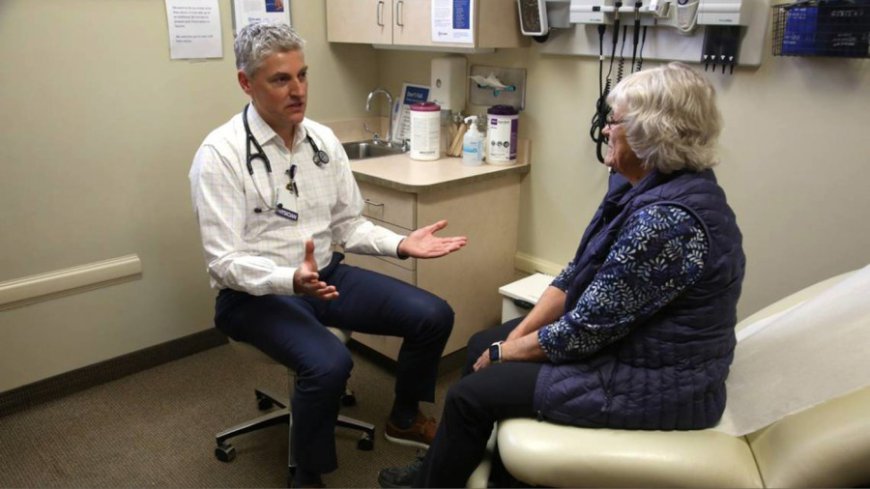America’s doctors earn the right to demand a better system
They’re not asking for an easy life: They’re asking for an easier one.

Rep. Greg Murphy (R), a doctor and congressman from North Carolina, recently posted on social platform X: “So troublesome to see so many young doctors complaining about how hard the job is. Your job is about taking care of patients. It’s called dedication. It’s called devotion. If you wanted an easy life, you should’ve chosen something else.”
He echoed a sentiment shared by many, including within medicine itself.
My partner is one of those young doctors. For the past decade, I have watched her give everything to medical school and training. That’s why I know Murphy misunderstands what young doctors are really asking for.
They’re not asking for an easy life: They’re asking for an easier one.
Every doctor chooses medicine fully aware that it’s a path met with purpose and pressure at every turn. Even before training begins, their futures are shaped by a match system that determines where they’ll live and train, often far from family or support.
They enter a career defined by shifting standards that dictate how they’ll work. Each new class of trainees steps into an evolving system, often advocating for changes they may never personally benefit from.
Previous generations of doctors fought for improved conditions, speaking up about dangerously long hours and inadequate protections. While today's trainees still work 24-hour shifts and 80-hour weeks, these hours are weighed down with growing administrative burdens and a culture where voicing concerns about patient care or personal well-being can be met with dismissal, retaliation or ridicule.
Throughout their journeys, many delay marriage, children, homeownership and even their own health care — willingly postponing hallmarks of the American Dream in service of others.
By the time they complete training in their 30s, they often carry debt that rivals a mortgage for a home still out of reach, held back by years of trainee pay that reflects neither their value nor the cost of living. Most troubling of all, doctors die by suicide at rates significantly higher than the general population.
Yet each summer, tens of thousands of young doctors take their next steps in medicine.
For my partner, that meant completing fellowship training and her final 24-hour shift on labor and delivery. As she had done so many times before, she woke up, threw on her scrubs and braced for what lay ahead: the delicate dance of helping bring life into the world while bearing witness to pain, joy and everything in between.
I don’t see what happens inside the hospital — the life-altering decisions, the compassion amid chaos and the unimaginable weight of being responsible for human lives. My only window into that world is what follows her home. Though fiercely devoted to her work, she still needs space to release what the system insists she carry in silence.
Yes, they choose this difficult path, but choice doesn’t erase sacrifice. And when people in this profession speak up, it’s not from a lack of devotion — it’s proof of it. They share their hard-earned perspectives to help clear the path for those who follow and make it one worth choosing.
Murphy’s words were aimed at young doctors, but the sentiment permeates every corner of health care. Accrediting bodies, hospitals, policymakers, insurers and even professional associations don’t always recognize the lived experience of today’s health care workers. To disregard their perspectives is to undermine the very system they work tirelessly to sustain.
It’s easy to overlook what health care workers sacrifice when their extraordinary efforts become routine. While every health care professional has unique challenges, their shared experience runs deep.
They work shifts that stretch time and test the limits of human endurance, often setting aside the basic rhythms of daily life. Weekends and holidays become fading concepts. And still, they return — again and again — driven by a deep commitment to patient care.
That’s why they deserve a voice. If genuine concerns continue to be dismissed as a lack of dedication, we risk creating a future where aspiring doctors will do exactly as the congressman prescribes — choose something else.
Perhaps what’s truly troublesome isn’t that they’re speaking up, but the silence that could follow if we fail to listen.
Brendan Hood, MBA, is a Los Angeles-based marketing professional and an advocate for the well-being of health care workers.
What's Your Reaction?
























